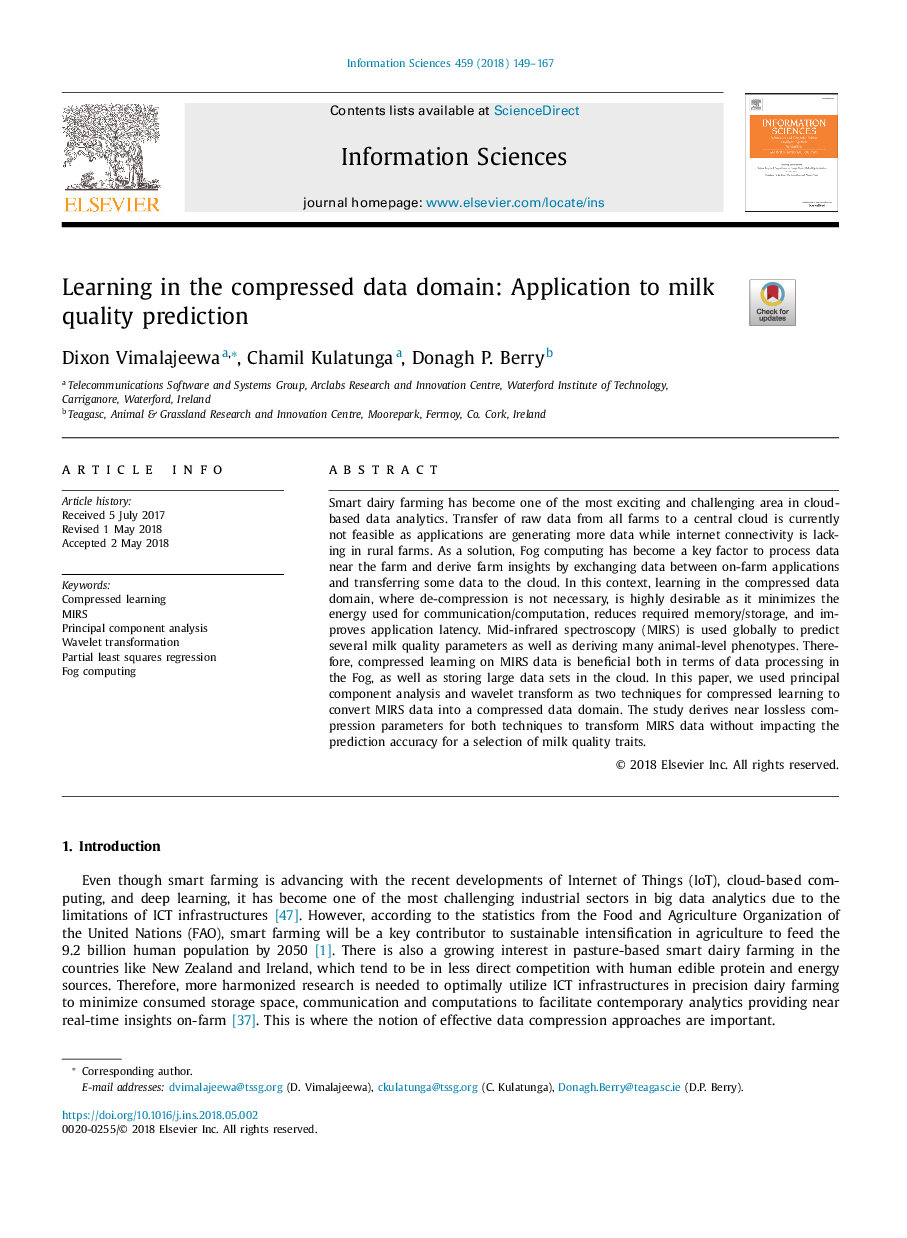| Article ID | Journal | Published Year | Pages | File Type |
|---|---|---|---|---|
| 6856289 | Information Sciences | 2018 | 19 Pages |
Abstract
Smart dairy farming has become one of the most exciting and challenging area in cloud-based data analytics. Transfer of raw data from all farms to a central cloud is currently not feasible as applications are generating more data while internet connectivity is lacking in rural farms. As a solution, Fog computing has become a key factor to process data near the farm and derive farm insights by exchanging data between on-farm applications and transferring some data to the cloud. In this context, learning in the compressed data domain, where de-compression is not necessary, is highly desirable as it minimizes the energy used for communication/computation, reduces required memory/storage, and improves application latency. Mid-infrared spectroscopy (MIRS) is used globally to predict several milk quality parameters as well as deriving many animal-level phenotypes. Therefore, compressed learning on MIRS data is beneficial both in terms of data processing in the Fog, as well as storing large data sets in the cloud. In this paper, we used principal component analysis and wavelet transform as two techniques for compressed learning to convert MIRS data into a compressed data domain. The study derives near lossless compression parameters for both techniques to transform MIRS data without impacting the prediction accuracy for a selection of milk quality traits.
Keywords
Related Topics
Physical Sciences and Engineering
Computer Science
Artificial Intelligence
Authors
Dixon Vimalajeewa, Chamil Kulatunga, Donagh P. Berry,
